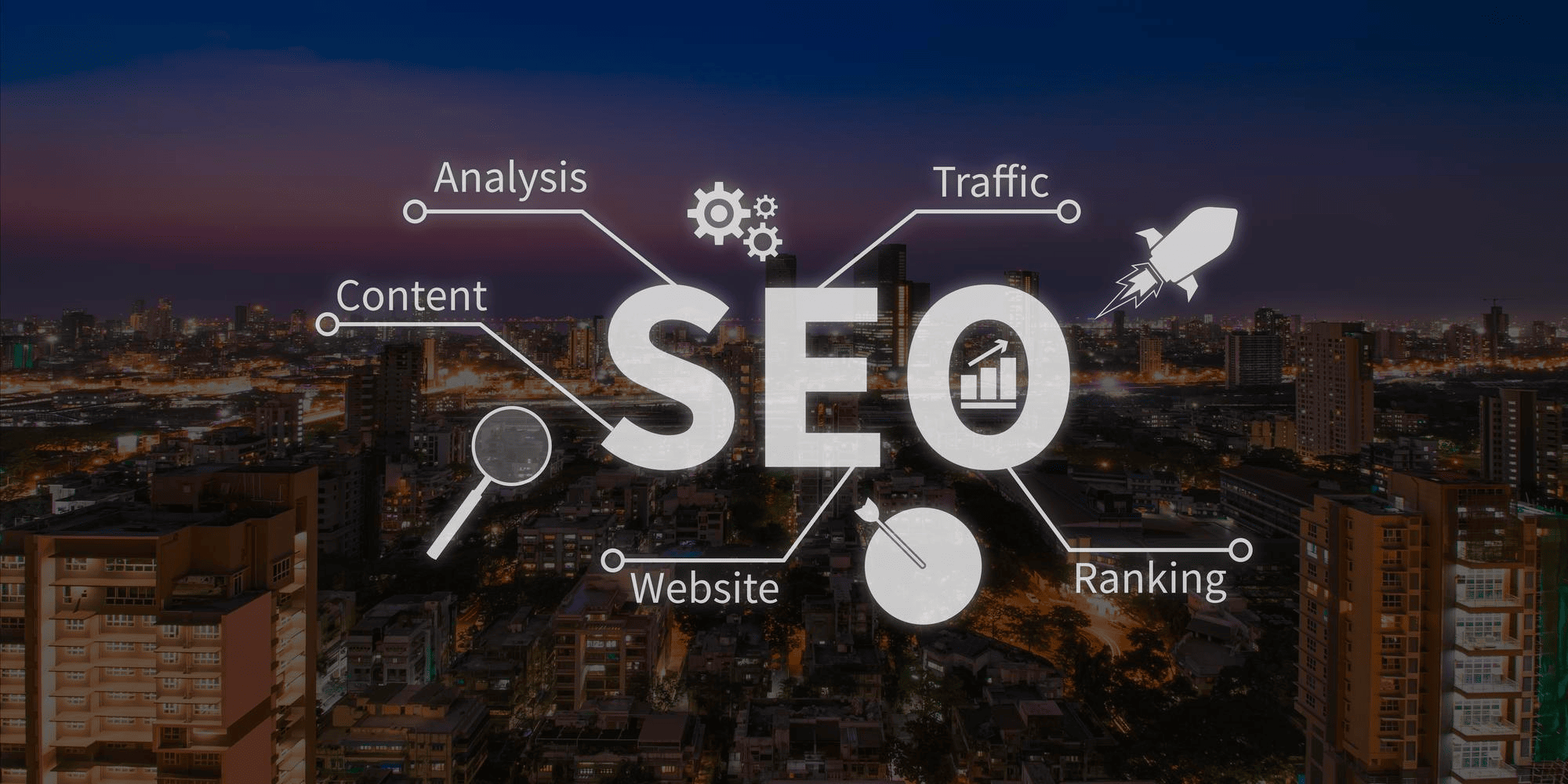Importance of E-A-T in SEO success
6 mins | Oct 08, 2023
SEO isn't just about making your website rank higher. It's a big puzzle with lots of pieces, and to become a website expert, you need to put them all together. When it comes to your website's rank in search results, there's a special factor you should know about: EAT. Importance of EAT stands for Expertise, Authoritativeness, and Trustworthiness, for how your site does on Google.
If you're still learning about SEO, that's okay. We've got plenty of helpful articles on our website to guide you. In this one, we're going to dig deep into EAT SEO. We'll break down what it means and how it connects to Google's SEO updates.
Understanding EAT SEO is a must if you want your website to show up higher on Google. These are the factors Google checks to decide whether your website is good. Focusing on these areas can improve your site's chances of being seen and trusted in search results. So, in this blog, we learn about EAT and how it works.
2. Understanding the Importance of E-A-T
Let's start with the basics. What exactly is E-A-T, and why should you care about it for your website's SEO?
E-A-T, which stands for Expertise, Authoritativeness, and Trustworthiness (EAT in SEO terms), is not just another extra word in SEO. It represents a fundamental shift in how search engines like Google assess the quality and relevance of online content.
Understanding E-A-T in SEO Google guidelines and incorporating it into your digital strategy is now imperative to thrive in the competitive online landscape.
Now, you might wonder, What is the Importance of E-A-T in SEO? Well, it's not a new concept. Google introduced it as part of its quest to provide users with the best possible search results.
Think of it this way: when you search for something on Google, you want reliable information. Whether you're looking for a recipe, health advice, or the latest news, you trust Google to deliver accurate and trustworthy results.
To do this, Google's ranking algorithms consider E-A-T in SEO Google guidelines as crucial. They want to make sure that experts write the websites they recommend, are authoritative in their fields, and can be trusted.
Let's break down E-A-T into its three components and learn in detail.
3. Expertise (E) in SEO Google guidelines
Let's break it down in simple terms: Expertise (E) in SEO means you know your content, especially when it comes to the topic you're writing about. Whether you're discussing tasty recipes or complex legal matters, being an expert matters in the world of online content. Let's see Google Checks Your Expertise as per SEO Google guidelines.
Author Credentials and Qualifications
Imagine you're reading a blog post about heart surgery. Would you trust it more if it's written by a heart surgeon or a random person on the internet? Google thinks like you. They look at who's behind the content.
If the author has impressive qualifications and a background in the subject (like medical degrees for health topics), Google nods in approval. But they're not just about degrees. Real-life experience can make you an expert, too.
Content Quality and Accuracy
Imagine you're searching for the best chocolate chip cookie recipe. You click on a link, and it's full of errors and outdated info. Not cool, right? Google feels the same.
Google wants top-notch content. It should have the right facts, be up-to-date, and provide valuable insights. So, if you're talking about the latest tech gadgets, you better know your gadgets inside out. Now, let's get practical. Here's how to show Google you're the real deal:
Content That Shines
Create content that's a gem. If you run a blog, online store, or anything online, make sure your content fits your niche and helps your audience.
Don't stick to just one format. Try articles, videos, infographics, or podcasts. People learn differently, so mix it up.
Always come up with original ideas and text. Duplicate content can harm your website, as search engines can drop your rankings. Hence, you must ensure originality with the help of a plagiarism checker, which allows you to check whether any portion of your content is plagiarized.
Show Off Your Authors
If you've got a bunch of experts creating your content, don't keep it a secret. Share their qualifications, experience, and any awards they've bagged. This builds trust and defines expertise.
Encourage your experts to publish for other high-profile websites in your field. When those sites link back to you when you search for them, E-A-T's important in SEO Google rules.
In the next part, we'll dive into Authoritativeness, the second pillar of E-A-T. Learn how to become a trusted source.
4. Authoritativeness (A) in EAT SEO
Authoritativeness (A) in SEO is like being a Google expert. It means you're the go-to source for trustworthy and reliable information. When Google looks at your website, it wants to see that you're the authority on your subject. How Google Measures Your Authoritativeness?
Backlinks and Domain Authority
Think of backlinks like votes of confidence. When other websites link to yours, it's a sign that they trust your content. And if those sites are respected in your field, Google raises an eyebrow.
Domain authority is like your website's reputation score. It's based on the quality and quantity of backlinks. A higher score means Google thinks you're more authoritative.
Social Signals and Mentions
Imagine you post a hilarious travel video that goes viral on social media. People start sharing, liking, and mentioning it. Google sees this and thinks, This is the new location & content has a quality too.
Importance of EAT for Boosting Your Authoritativeness in SEO
Instead of pursuing random links, seek websites relevant to your specific niche or industry. Actively participate on social media platforms associated with your subject matter, sharing your content, interacting with your audience, and fostering a community. As individuals begin to show appreciation by liking, retweeting, and commenting on your posts, Google pays attention.
Remember, Authoritativeness is all about trust. Show that you're a trustworthy expert by being active and helpful in your online neighbourhood.
5. What is the Trustworthiness meaning?
Trustworthiness is the main reason for search engines to come to your website. People need to trust your website to stick around. SEO is about creating a safe and reliable environment for your audience. The factors cover the Trustworthiness of the website to be focused on.
Security Measures (HTTPS)
Have you ever seen that padlock icon in your browser's address bar? That's HTTPS, and it's a sign that a website takes security seriously. Google prefers sites that keep your data safe, especially for sensitive topics.
Website Design and User Experience
Imagine entering a cluttered and confusing store. You'd turn around and leave. The same goes for websites. If your site looks clean, loads fast, and is easy to navigate, Google gives you a thumbs-up.
Building Trust in SEO
HTTPS is a must if you're handling any personal or financial information. It's like locking the door to your online store. Make sure your privacy policies are crystal clear.
Encourage user-generated content and reviews. When people share their experiences, it builds trust.
Google makes adjustments to give people the best search results. Google wants to be like a helpful foe who serves you good content. So, they keep changing the content to ensure you get the best results when searching for something.
Now, let's look at some real examples. These examples show how important E-A-T is for SEO.
For instance, websites that give medical advice went up in the rankings. They did this by having articles written by Google experts and using the right sources, which improved their SEO. Google liked this, so it boosted their rankings. But in advance, Google also dives deep into who is, what, and how much content has been written by Arthur before.
6. Importance of EAT in Different Types of Websites
E-A-T, which stands for Expertise, Authoritativeness, and Trustworthiness, plays a vital role in SEO. However, it's different for all kinds of websites. Let's explore how E-A-T influences different types of online platforms and why it's crucial for each.
E-A-T for YMYL (Your Money or Your Life) Websites
You're looking for financial advice or health-related information online. In such situations, you want reliable and safe guidance. That's why E-A-T matters significantly for YMYL websites.
YMYL sites focus on topics related to your money, health, or overall life.
As a result, they must excel in terms of E-A-T. Users need to trust that these sites are experts in their fields, highly authoritative, and completely trustworthy. It's not just about following SEO Google guidelines; it's about ensuring user well-being.
E-A-T for Informational Websites
Think of informational websites as your knowledgeable buddies on the internet, providing insights on various subjects. But how can you be sure they're reliable sources of information?
This is where E-A-T comes into play. Whether you're looking for gardening tips, cooking recipes, or travel advice, informational websites must showcase their expertise in SEO, authority, and Trustworthiness. Visitors should feel like they've found a valuable source of dependable knowledge, especially in light of Google updates in SEO.
E-A-T for E-commerce Websites
Imagine e-commerce websites as your virtual shopping malls. When you shop online, you want to be confident that your purchases are safe and worthwhile, right?
E-A-T is equally vital for e-commerce platforms. Shoppers must trust that they're dealing with a reputable and knowledgeable source. E-commerce websites must demonstrate their expertise in SEO regarding their products and establish Trustworthiness. This goes beyond just understanding the full form of EAT; it's about building a strong online presence.
7. The Role of Content in E-A-T Define Expertise
When we discuss the importance of E-A-T, it all comes down to one thing: the quality of the content. High-quality content is the backbone of E-A-T and plays a vital role in engaging your audience while establishing your website's credibility.
Imagine you're searching for any particular product review, and you come across two articles. One is well-researched, backed by experts, and contains the latest information. The other is vague, lacking authoritative sources. Which one would you trust?
It's clear that quality matters. Quality content boosts E-A-T for SEO and ensures that your readers find valuable, trustworthy information. It's not just about ranking on Google; it's about creating content that genuinely helps and informs your audience.
Now, let's explore how you can create and improve content that aligns with E-A-T principles.
I. Guidelines for High-Quality Content: To enhance your website's E-A-T, consider the following guidelines when creating content:
II. Thorough Research: Start by conducting in-depth research on your topic. Look for reliable sources, statistics, and expert opinions to support your content.
III. Author Credentials: Highlight the qualifications and expertise of the content's author. When readers see that the author is an expert in the field, they're more likely to trust the information.
IV. Clarity and Readability: Ensure that your content is readily comprehensible. For effective organisation, utilize straightforward language, divide lengthy paragraphs, and incorporate distinct headings and subheadings.
V. Cite Trustworthy Sources: Back up your claims with citations from reputable sources. This adds credibility to your content.
Remember the content you already have on your website. Periodically review and update it to maintain E-A-T:
VI. Accuracy Check: Verify that the information in your existing content is accurate and up-to-date. Remove or update any outdated content.
VII. Authorship: Attribute content to specific authors, especially those with expertise in the subject matter.
VIII. User Feedback: Pay attention to user feedback and comments. Address any concerns or questions to show that you value user engagement and trust.
This not only enhances the overall user experience but also boosts your SEO. Keep in mind that, concerning E-A-T, content holds the primary significance!
8. Tools and Resources for E-A-T in SEO Optimization
Now, let's explore some valuable tools and resources that can assist you in optimizing your website for Expertise, Authoritativeness, and Trustworthiness (E-A-T).
Several SEO tools can help you assess and improve the E-A-T aspects of your website. Here are some noteworthy ones:
I. Moz: Moz offers tools to check your website's domain authority, track backlinks, and analyze on-page SEO factors. This can help you enhance your website's Authoritativeness.
II. SEMrush: SEMrush provides insights into your website's organic search performance, including keyword rankings and competitive analysis. It can help you identify areas where you can improve expertise and authority.
III. Ahrefs: Ahrefs is a comprehensive SEO toolset that allows you to explore backlinks, conduct keyword research, and monitor your website's performance. It's useful for tracking your website's authority.
IV. Google Search Console: Google's tool provides data on how your site appears in Google search results. It offers valuable insights into your website's performance, including any technical issues that may affect Trustworthiness.
Remember, optimizing E-A-T is an ongoing process, and utilizing these tools and resources can aid you in achieving better search rankings and credibility. By continuously improving your website's expertise, Authoritativeness, and Trustworthiness, you'll be well on your way to SEO success.
9. Importance of E-A-T and the Future E-A-T in SEO
As we look ahead to the future of SEO, it's evident that Expertise, Authoritativeness, and Trustworthiness (E-A-T) will continue to play a pivotal role in search engine rankings. Let's delve into what lies ahead:
I. AI and E-A-T: Artificial intelligence (AI) will become more adept at assessing E-A-T factors. Search engines will increasingly rely on AI to determine the quality and Trustworthiness of web content.
II. Voice Search: With the rise of voice-activated search, E-A-T will extend beyond written content. Websites will need to establish expertise and trust in voice-friendly formats.
III. User Experience: User experience (UX) will remain crucial. Search engines will favour websites that provide seamless, trustworthy, and authoritative experiences for users.
Ongoing Strategies for Maintaining E-A-T in the Long Term
a. Content Quality Control: Regularly review and update content. Ensure it remains accurate, relevant, and aligns with the latest industry trends.
b. Expertise Showcase: Highlight the expertise of your team and contributors. Showcase credentials, certifications, and industry recognition.
c. User Engagement: Foster user engagement through comments, reviews, and social interactions. Encourage feedback and respond promptly to user inquiries.
d. Backlink Strategy: Continue to build high-quality backlinks from authoritative sources. A strong backlink profile boosts your website's authority.
e. Stay Informed: Keep abreast of SEO trends, algorithm updates, and industry developments. Join SEO communities and attend webinars to gain insights.
10. Conclusion
The SEO landscape will continue to evolve, with E-A-T remaining a cornerstone. Artificial intelligence, voice search, and user experience will play significant roles. Technical SEO will gain importance as website security and mobile-friendliness become crucial.
As we move forward, remember that E-A-T isn't a one-time effort but an ongoing commitment to providing valuable, trustworthy, and authoritative content. By implementing E-A-T strategies, you're optimising search engines and creating a more meaningful online experience for your audience.
Stay committed to E-A-T, and you'll navigate the ever-changing SEO landscape confidently and succeed.
Thank you for joining us on this Importance of E-A-T, and we wish you the best on your SEO journey.
Author






_12Grids.webp)
